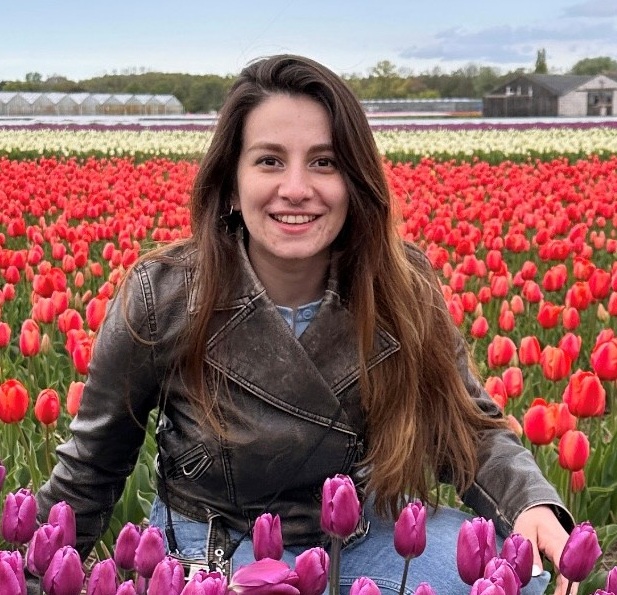-
Host organisation: MIMETAS, Leiden, The Netherlands
-
Supervisors: Dr. Karla Queiroz
-
Research project: DC3 - The Establishment of Clinical Translational AML MRD On-Chip Models
About me
"I am an enthusiastic scientist driven to translate leukemia research into therapies for patients. Within MIRACLE-Leukemia, I work in an exceptional environment with next-generation technologies, where I aim to pioneer bone marrow-on-chip MRD models that bridge science and clinic, advancing personalized treatments that improve long-term survival and quality of life for leukemia patients".

I am Nurbanu Erölmez and I am from Türkiye. I studied Molecular Biology and Genetics for my Bachelor’s and complemented it with a Minor in Bioengineering, where I first developed a strong interest in cancer biology and immunology. I was fascinated by how cellular mechanisms can be translated into targeted therapies, and I wanted to pursue research that directly connects fundamental discoveries to clinical application. To deepen my knowledge and gain international experience, I moved to Germany for a Master’s in Life Sciences at the University of Würzburg. For my Master’s thesis, I joined the laboratory of Prof. Beilhack, where we focused on the characterization
and targeting of leukemic stem cells (LSCs) in acute myeloid leukemia (AML). We designed flow cytometry panels to identify AML-associated antigens and explored their potential for combinatorial targeting, using in vitro assays, patient-derived samples, and in vivo murine models to study bispecific and trispecific T-cell engagers. This experience allowed me to combine immunological methods with translational questions in leukemia and reinforced my passion for tackling one of the greatest challenges in hematology: minimal
residual disease (MRD).
After my Master’s, I broadened my expertise across academic and translational settings in Germany. At BioNTech, I gained practical experience in immunological assays and drug development through testing antibody–drug conjugates, protein-based therapeutics, and immunomodulators. Later, at the UMC Mainz, I was involved in research investigating how the gut microbiota influences macrophage development and function, applying flow cytometry, imaging, single-cell sequencing, and germ-free mouse models. Most recently, at the UMC Freiburg, I contributed to research on oncogene-driven immune escape in AML. These experiences deepened my understanding of immune evasion and resistance in leukemia and further clarified where I can make the most impact: by pursuing translational leukemia research through my PhD.
When I first came across the MIRACLE-Leukemia Network, I felt it was exactly what I had been looking for: a collaborative, international environment that combines next-generation technologies with clear clinical relevance. I was particularly drawn to the DC3 project at MIMETAS, as it brings together my background in leukemia research with innovative organ-on-chip model systems. At MIMETAS in the Netherlands, my PhD focuses on developing AML MRD bone marrow-on-chip models using the OrganoPlate® microfluidic system. With this platform, we reconstruct the human BM environment by integrating AML cells, immune and stromal components, and extracellular matrix in 3D. Our goal is to create physiologically relevant models to study AML persistence, test therapies in a highthroughput and patient-relevant manner, and reduce reliance on animal models. Beyond providing insight into MRD biology, these models will also serve as translational testbeds for discoveries across MIRACLE, from single-cell omics to novel immunotherapies.
For me, MIRACLE is more than an academic milestone; it connects to my own story as well. My mother survived AML at a young age, and her journey continues to inspire my dedication to leukemia research. Through this project, I hope to shape the next generation of leukemia models and therapies that prevent relapse and improve survival and quality of life for patients.